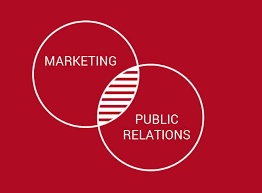Driving Success: The Role of Marketing and Public Relations Firms in Strategic Communication
Marketing and Public Relations Firms: Driving Success Through Strategic Communication
In today’s competitive business landscape, the role of marketing and public relations firms has become increasingly vital for companies looking to stand out and connect with their target audience. These firms play a crucial role in crafting and delivering strategic communication campaigns that drive brand awareness, engagement, and ultimately, success.
Marketing firms focus on promoting products or services through various channels such as advertising, digital marketing, social media, and more. They work to create compelling messaging that resonates with consumers and drives them to take action. Public relations firms, on the other hand, are responsible for managing a company’s reputation and fostering positive relationships with stakeholders, including the media, customers, employees, and the public at large.
By combining the expertise of marketing and public relations firms, businesses can create integrated communication strategies that deliver a unified message across all touchpoints. This holistic approach ensures consistency in branding and messaging, ultimately enhancing brand credibility and trust among consumers.
Marketing and public relations firms also play a key role in crisis management. In times of crisis or negative publicity, these firms are equipped to respond swiftly and effectively to mitigate damage to a company’s reputation. By providing strategic counsel and implementing crisis communication plans, they help businesses navigate challenging situations while maintaining trust with their stakeholders.
Furthermore, marketing and public relations firms are constantly adapting to the evolving digital landscape. With the rise of social media platforms and digital marketing channels, these firms are at the forefront of leveraging new technologies and trends to reach audiences in innovative ways. They utilise data-driven insights to optimise campaigns for maximum impact and ROI.
In conclusion, marketing and public relations firms play a critical role in helping businesses navigate the complex world of communication. By harnessing their expertise in crafting compelling messaging, building brand reputation, managing crises effectively, and leveraging digital tools for success, these firms empower companies to achieve their communication goals and drive long-term growth.
Top 6 FAQs About Marketing and Public Relations Firms
- What services do marketing and public relations firms offer?
- How can marketing and public relations firms help my business stand out in a competitive market?
- What is the difference between marketing and public relations firms?
- How do marketing and public relations firms measure the success of their campaigns?
- Can marketing and public relations firms help with crisis management?
- What trends are shaping the future of marketing and public relations firms?
What services do marketing and public relations firms offer?
Marketing and public relations firms offer a wide range of services to help businesses enhance their communication strategies and achieve their goals. These services may include brand development, market research, advertising campaigns, social media management, content creation, media relations, crisis communication, event planning, influencer marketing, and more. By leveraging their expertise in strategic communication, these firms work closely with clients to tailor solutions that align with their objectives and resonate with their target audience. Whether it’s building brand awareness, managing reputation, generating leads, or fostering positive relationships with stakeholders, marketing and public relations firms play a crucial role in driving success through effective communication initiatives.
How can marketing and public relations firms help my business stand out in a competitive market?
Marketing and public relations firms can help your business stand out in a competitive market by developing strategic communication campaigns that highlight your unique value proposition, differentiate you from competitors, and resonate with your target audience. Through creative messaging, targeted media placement, engaging content creation, and proactive reputation management, these firms can elevate your brand visibility, build credibility, and foster meaningful connections with customers. By leveraging their expertise in understanding market trends, consumer behaviour, and effective communication strategies, marketing and public relations firms can position your business as a leader in the industry and drive success amidst fierce competition.
What is the difference between marketing and public relations firms?
When considering the difference between marketing and public relations firms, it is important to note that while both disciplines are rooted in strategic communication, they serve distinct purposes. Marketing firms primarily focus on promoting products or services through various channels like advertising, digital marketing, and social media to drive consumer engagement and sales. On the other hand, public relations firms are more concerned with managing a company’s reputation, fostering positive relationships with stakeholders, and handling media relations. While marketing aims to drive direct sales and customer engagement, public relations focuses on building brand credibility, trust, and maintaining a positive image in the eyes of the public. Both types of firms work together cohesively to create integrated communication strategies that align with a company’s overall goals and objectives.
How do marketing and public relations firms measure the success of their campaigns?
Marketing and public relations firms employ a variety of metrics to measure the success of their campaigns. These metrics may include key performance indicators (KPIs) such as website traffic, social media engagement, lead generation, brand awareness, media coverage, and customer sentiment analysis. By tracking these metrics before, during, and after a campaign, firms can evaluate the effectiveness of their strategies and make data-driven decisions to optimise future efforts. Additionally, return on investment (ROI) analysis is often used to assess the financial impact of campaigns and determine the overall success in achieving business objectives. Through comprehensive measurement and analysis, marketing and public relations firms can demonstrate the tangible results of their campaigns and continuously refine their approach for greater success.
Can marketing and public relations firms help with crisis management?
Marketing and public relations firms play a crucial role in crisis management for businesses. These firms are equipped with the expertise and experience to help companies effectively navigate challenging situations and mitigate damage to their reputation during crises. By providing strategic counsel, developing crisis communication plans, and implementing timely and appropriate responses, marketing and public relations firms can help businesses maintain trust with their stakeholders and emerge from crises stronger. Their proactive approach to managing crises ensures that companies are well-prepared to address any unexpected challenges that may arise, safeguarding their brand reputation and credibility in the eyes of the public.
What trends are shaping the future of marketing and public relations firms?
One frequently asked question regarding marketing and public relations firms is, “What trends are shaping the future of these industries?” The landscape of marketing and public relations is constantly evolving, with several key trends driving change. From the increasing importance of digital marketing and social media engagement to the rise of influencer partnerships and data-driven insights, firms in these sectors are adapting to meet the demands of a dynamic marketplace. Embracing innovation, personalisation, sustainability, and authenticity are becoming pivotal factors for success in the future of marketing and public relations firms. Staying abreast of these trends and leveraging them effectively will be essential for firms to remain competitive and deliver impactful results for their clients.




